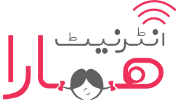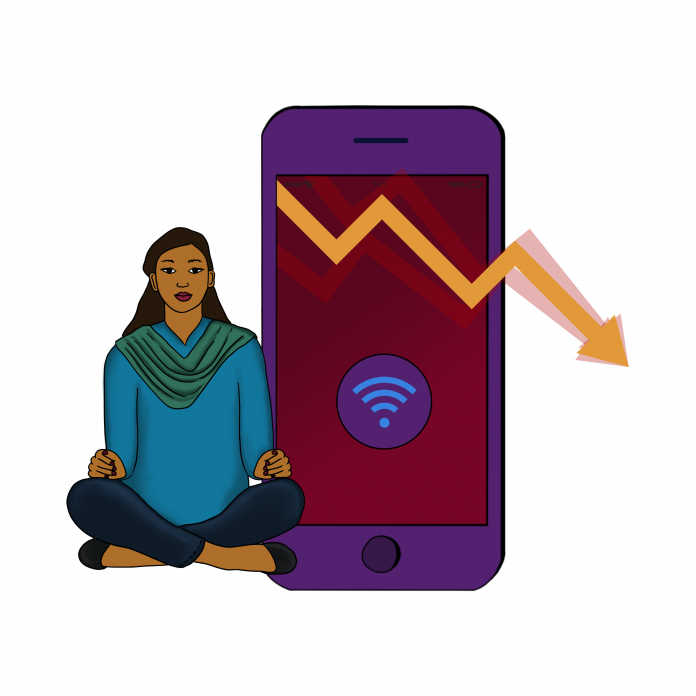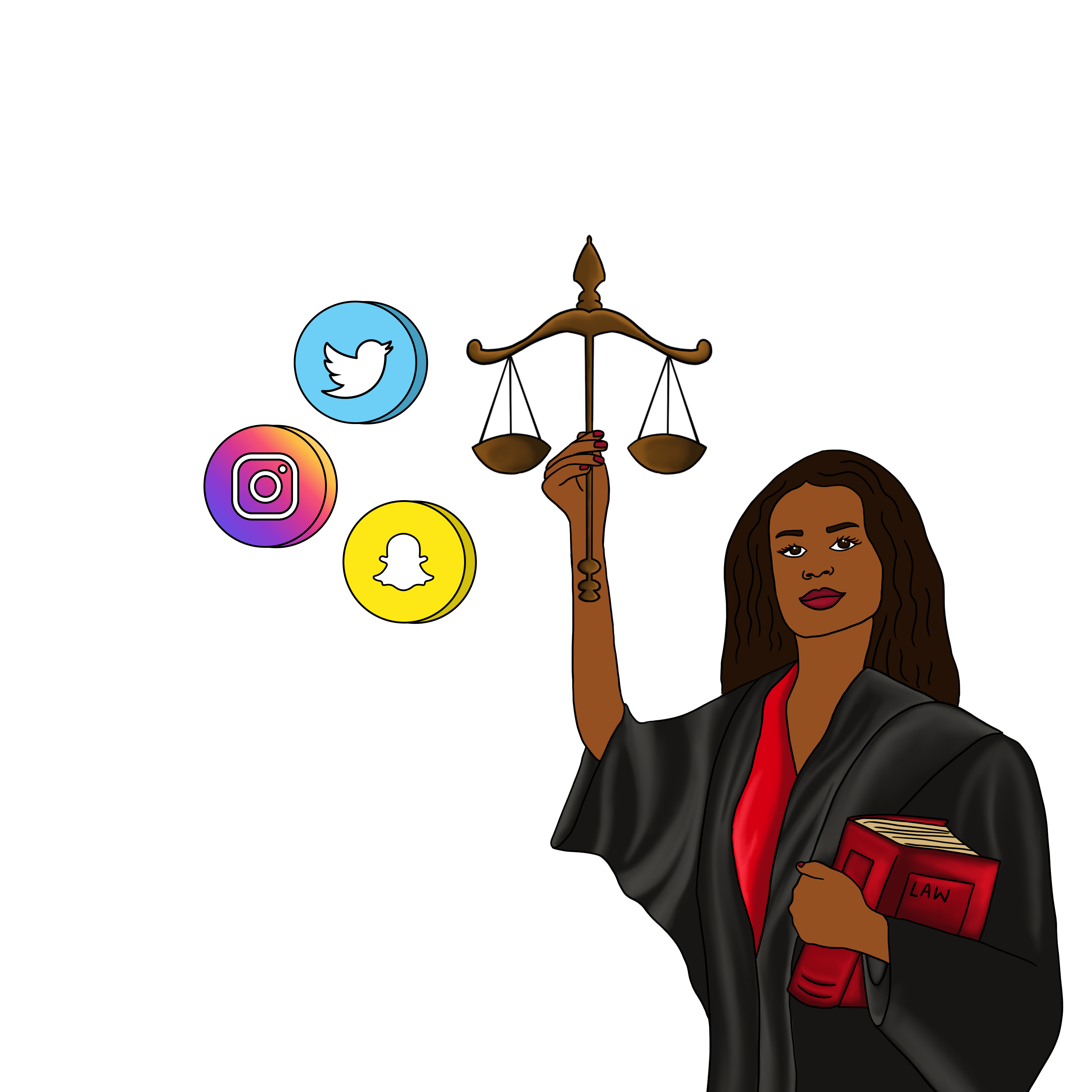By Naurah Khurshid
Women and the time they spend on their mobile phones are an easy target of humour directed at them mainly by men. Recently, popular singer turned politician Abrar-ul-Haq lamented at a public event that unlike “our mothers” who recited from the Quran, mothers nowadays play songs on their phones for their children. However, according to a survey conducted in 2021, Pakistan reported the biggest gender gap in mobile ownership and internet access in the region. In other words, Pakistani women are significantly less likely than men to own mobile phones and have access to the internet. While this disparity affects many aspects of a woman’s life, this article focuses on how inaccessibility to mobile phones and the internet is an obstacle to women’s awareness about abuse and their ability to seek help.
Male and female mobile ownership and mobile internet use by country
Percentage of total adult population
MOBILE OWNERS (%) GENDER GAP MOBILE INTERNET USERS (%) GENDER GAP
Source: The Mobile Gender Gap Report 2021, GSMA.
Prevalence of gender-based abuse
Domestic abuse and intimate partner violence against women are prevalent to the extent of being normalised in the Pakistani society. Pakistanis do not object to the idea that men have an innate right to control and, if necessary, abuse women in their lives. That is why passing domestic violence laws is a contentious affair and even the local drama industry is comfortable with showing abusive men as heroes. According to a UNODC report, 70-90% of Pakistani women have experienced abuse from an intimate partner. Amongst other shocking statistics mentioned in the report, it is important to note that while 50% of women never report domestic violence, only 0.4% of women experiencing violence take their cases to court. If one were to believe general discussions taking place at homes and on TV, it would seem that women all over Pakistan were talking only about abuse and harassment. Even federal ministers seem to believe that enemies of Pakistan want to project it as a country unsafe for women by reporting cases of sexual violence and murder.
Away from social media, statistics reveal that a fraction of the cases are reported, an even smaller fraction is taken to court and a negligible number of cases actually result in convictions. Pakistani society’s acceptance of different forms of abuse against women by their intimate partners is reflected in women internalising these attitudes and believing that men are justified in being abusive.
Awareness regarding different forms of abuse
Dr. Asad Hussain, an Islamabad-based Consultant Psychiatrist, defines abuse as an action or behaviour that hurts someone. This involves physical violence, emotional manipulation, sexual abuse, etc. In his experience, domestic abuse is normalised and considered a part of marriage not only in the rural, lower-educated segments of the population, but also amongst the well-educated urban classes where women are told to practice patience when they are going through abuse. He says that there is massive unawareness regarding what can be categorised as abuse amongst women, and even if they were to be aware of their rights, their financial dependence upon their partners and the lack of anywhere safe to go is a major hindrance to their ability to escape. He has also come across cases of total control exercised by men over their wives by not allowing them to own a smartphone or leaving the house without a male companion. In his opinion, it is unacceptable for men, who benefit from patriarchal structures in our society, to allow female members of their family to get educated, or have access to information.
There are different ways in which women are controlled by the male members of their families. Denying women access to education, forcing them to leave their jobs, having total financial control of an adult woman, not giving them permission to own mobile phones or denying them access to internet are all different forms of abuse designed to subjugate women to an extent that they would stay quiet even in cases of violence. While these issues have been discussed on social media relatively freely, there is still a huge stigma attached to bringing them up in family discussions.
Social media and Intimate Partner Violence discussions
Social media has evolved over time from being a source of entertainment to facilitating productive discussions regarding society and providing a safe space to marginalised communities. Social media platforms run by women to provide a space exclusively for other women to discuss their issues have normalised talking about issues that are considered taboo. Women on these platforms have the liberty to keep their anonymity while seeking advice or help regarding their most troubling issues. These women-only groups serve an important purpose in discussing topics such as intimate partner abuse, sexual abuse, harassment, divorce, etc. Some of the women posting anonymously have no one they can discuss their issues with and social media gives them the space to share. In addition to that, other women on the internet are able to give vital advice and even offer help in response to posts regarding abuse, harassment, and custody battles.
The #MeToo movement in Pakistan was sparked and carried forward on social media by women who had undergone sexual harassment and abuse at the hands of total strangers, colleagues, superiors, household members, and intimate partners. Discussions around this movement were primarily conducted on the internet therefore women who do not have access to the internet were completely excluded from them. While many human rights activists rightly lauded this movement for removing the stigma around talking about abuse, not enough importance was given to the fact that a significant chunk of the female population in Pakistan had no access to the information being shared and that for these women sharing their stories would remain stigmatised.
Women’s legal rights and lack of awareness
Amna Baig, Assistant Superintendent of Police currently working on gender crimes in Islamabad, says that there is a huge gap between women facing domestic abuse and legal literacy. “Women do not know that they can register an FIR in case of physical abuse by their partners,” she says. Far from knowing about different forms of abuse, women have normalised violence and abuse as part of marriage and there is still a huge taboo against involving the police in marital abuse cases according to Baig.
Islamabad’s Gender Protection Unit where cases of domestic violence, harassment etc. can be lodged on a toll-free helpline, is a walk-in facility staffed entirely by female police officers in order to encourage women to report cases of abuse. According to statistics provided by Baig, the Gender Protection Unit has received 550 complaints from Islamabad alone, the majority of which are cases of violence. She states that in her experience of working on gender based crimes in different parts of Pakistan, in cases where a woman has been murdered by her partner, there has almost always been a history of domestic abuse and cases where abuse has been reported have never translated into murder.
Source: Assistant Superintendent of Police, Amna Baig.
These statistics underscore the importance of awareness regarding the legal recourse that a woman has a right to take in cases of domestic abuse, which can potentially save her life. However, the question remains, what becomes of women who are not allowed to own mobile phones or those who do not have access to the internet? There is a bigger information gap in such cases.
Social attitudes regarding mobile ownership by women
According to a study published by Media Matters for Democracy, women’s access to the internet is regulated by their male partners or their parents even though men do not face the same level of policing. One of the major hurdles for women in owning a mobile phone or using mobile internet has been family’s disapproval. Even in today’s digital age, Pakistani society attributes negative traits to girls and women who use mobile internet. They are considered attention-seeking and even characterless by some segments of the society. In more extreme cases, women have been murdered by their male family members over ownership of mobiles. Given how the Pakistani society actively discourages women from owning mobile phones and having an online presence, how do women inform themselves about helplines and laws that exist to protect them in case of violence or abuse? This topic is still not discussed openly in Pakistani homes and there are no mass information campaigns launched by the state to ensure that women even in the remotest corners of Pakistan are aware of their rights and their right to access the internet.
According to the Pakistan Telecommunication Authority, 47.47% of the population subscribe to 3G/4G internet and 49.08% subscribe to Broadband. Earlier when universities shut down due to COVID, there were protests by students from tribal areas of Khyber Pakhtunkhwa, Balochistan, and Gilgit-Baltistan where the state has restricted internet access and done numerous internet shutdowns. Lack of access and, in the case of women, societal pressures and permission issues mean that there is a wide information deficit regarding current legislation and resources available to women that help victims of domestic violence, harassment and abuse. According to ASP Baig, Pakistani women go through what is called “structural violence” throughout their lives which includes male members of their families making decisions for them, restricting their mobility and their access to basic facilities. However, she says she does not expect a push-back against this kind of violence in the near future. Patriarchal societies have rigid norms and structures in place that are never questioned, which then enables abuse and violence against women in many forms.
Internet access-a fundamental human right
Access to the internet and the right to communicate freely is a fundamental human right that should be ensured for both men and women. For women, access to information and debates about what can be counted as abuse is crucial. Where women have access to online support groups, even if it is through a friend, they share their concerns about potential red flags in their partner’s behaviour, stories of physical and emotional abuse, and stories of survival. Women are able to seek advice and even tangible help if they are going through a messy divorce or a custody battle and in cases where a woman is trying to escape an abusive marriage. Advocacy and information about legal steps that a woman can take to report abuse and potentially save her life exist mostly online. Considering the prevalence of gender-based violence in Pakistan, the state should take significant steps in order to inform the masses about helplines, laws for the prevention of abuse and cases that warrant a police report. There should be a massive campaign that focuses on reaching women in the most rural areas of Pakistan in order to signal the government’s willingness to put a stop to gender crimes and normalising discussions about intimate partner violence. It is also important for the state to increase internet penetration in the country by lifting restrictions and internet shutdowns, and increasing affordability of broadband and mobile internet.
Encouraging trends
The Mobile Gender Gap Report reports an encouraging trend in Pakistan regarding an increase in awareness about mobile internet. According to the report, awareness about mobile internet has increased amongst women from 39% in 2017 to 72% in 2020. Family disapproval as a barrier to owning mobile phones and using mobile internet has also become less significant over time. Therefore, there is room for hope that social acceptance of women owning mobile phones and being connected through the internet can potentially increase as connectivity becomes more important. That means more women will have access to life-saving information and guidance about the steps they can take in case they are unsafe at home.
In 2020, the Ministry of Human Rights Pakistan launched its toll free helpline to record cases of domestic abuse and violence, and provide legal advice. While the state’s recognition of the prevalence of gender-based violence and discussion on electronic media about gender-based crimes are important steps towards the solution, however, a lot more needs to be done. There is a considerable information gap between those women who have some access to a support group, albeit online, and those who do not have access to mobile phones or the internet. Pakistan has a long way to go before forms of abuse other than physical abuse are recognised by men, women, law-enforcing authorities, and the judicial system. Women having access to information about their fundamental human rights through mobile phones and the internet is an essential part of normalising the discussion around domestic abuse. Every new case about a woman being murdered by her partner is a reminder that she might have been alive had the violence she was going through been reported. Had she had a safe place to go, she might have escaped her murderer. Instead, our society continues to attach negative labels to women who have a social media presence, it continues to disbelieve women who come forward with their stories of survival. All of this, including not giving women permission to own mobile phones or using the internet, is part of a culture that enables and hushes up violence against women both online and offline.






